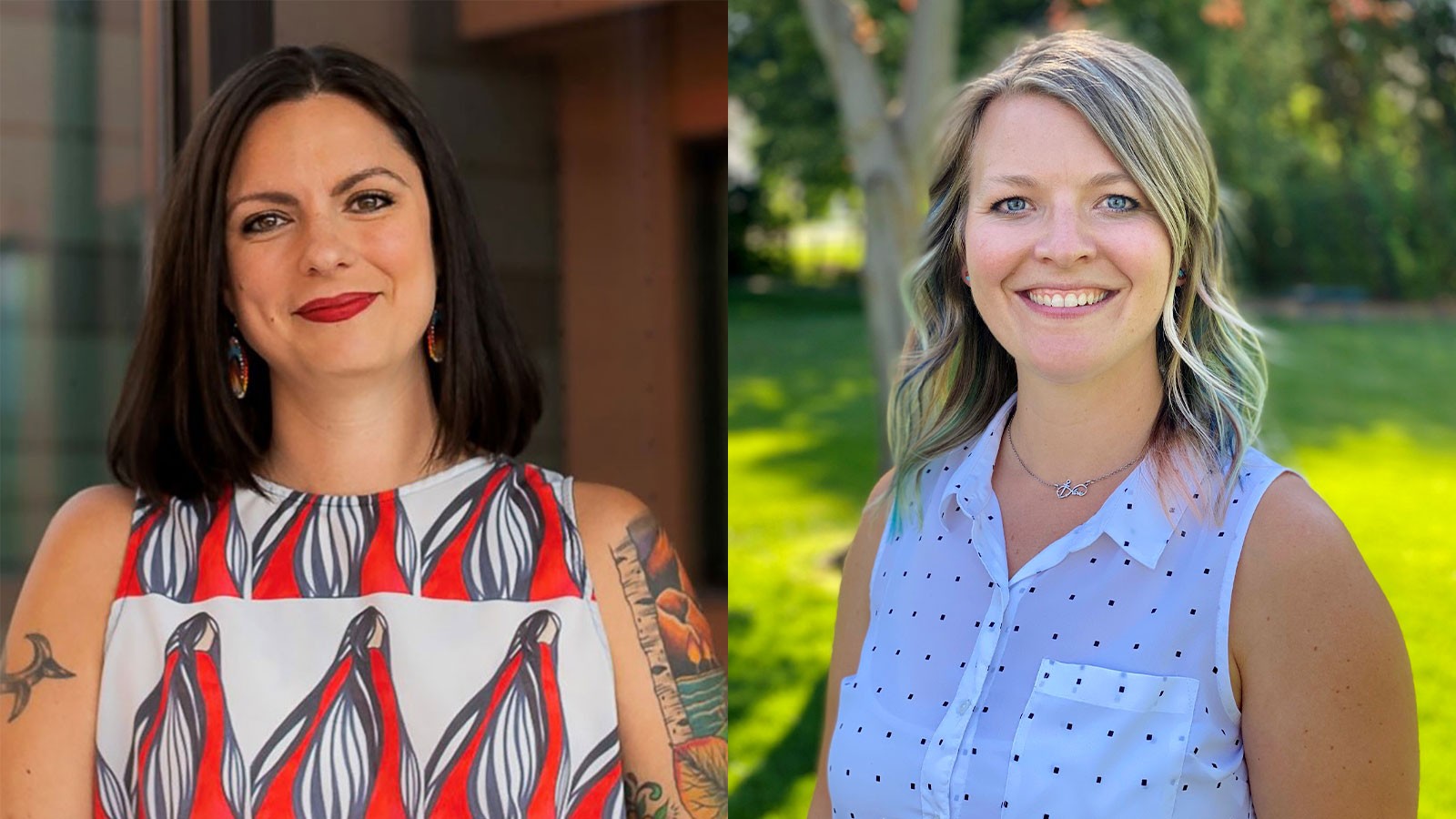Two USU Professors Helping Develop Tools to Support Indigenous Perspectives in K-12 Classrooms
Melissa Tehee and Breanne Litts are part of a project developing tools to support indigenous perspectives in K-12 classrooms.
Two faculty members in the Emma Eccles Jones College of Education and Human Services are the principal investigators on a project aiming to address the lack of representation of Indigenous culture, history and stories in the classroom.
Melissa Tehee is a professor in the Department of Psychology and director of the American Indian Support Project; Breanne Litts is a professor in the Instructional Technology and Learning Sciences department and the director of the Learn Explore Design Lab. They are working with Rogelio E. Cardona-Rivera from the University of Utah as another principal investigator and Darren Parry, a Tribal Knowledge holder for the Northwestern Band of the Shoshone Nation (NWBSN) in Utah.
Funded by a National Science Foundation grant award, this project is working to create representations of Indigenous narratives that support an Indigenous knowledge system rather than a Western knowledge system. Already in partnership with the Northwestern Band of the Shoshone Nation, they hope to expand this work in partnership with many Tribal Nations over time.
Tehee is a psychologist and brings her expertise in narrative and storytelling as a healing process with Indigenous communities. She is also a citizen of the Cherokee Nation.
Litts is a learning scientist and has been working with the NWBSN for four years, and has both deep knowledge of and relationships with the community. She also brings her expertise in designing storytelling technologies for learning.
Cardona-Rivera is a Puerto Rican computer scientist and has extensive expertise in narrative-based computational modeling techniques.
Councilman Parry is on the Tribal Council for the NWBSN and often works with K-12 teachers, integrating Indigenous perspectives and American Indian history into curricula. He visits hundreds of classrooms a year across Utah and Idaho to share knowledge.
Tehee explained that the histories that people learn in school really impact who they develop to be, stating that “it is difficult to value things you can’t see.” Teachers often feel uncomfortable teaching a culture and history they don’t fully understand and that they themselves often weren’t taught. Through this project, the team aims to address these pieces by making a sustainable emerging narrative technology for classrooms. They want Tribal Knowledge Holders to feel confident the technology accurately and appropriately represents their knowledge, and they want teachers to feel comfortable using this technology so that Tribal Knowledge Holders such as Parry don’t have the burden of visiting hundreds of classrooms a year.
For the Indigenous communities they work with, having the power to tell their own stories shapes their cultural identity and allows for healing. Further, when students in elementary school feel like they have someone in the classroom who understands their stories and perspectives, it makes a difference in how they experience the education system.
“I’m doing research I couldn’t have predicted because it is guided by what the needs are, not my trajectory,” Tehee said.
Litts added: “This new funding will support the needs our partners have right now. Specifically, the technology we will build through this work will support the preservation and sharing of culture in ways Tribal Knowledge Holders are asking for and K-12 teachers are telling us they need. This work represents our shared journey.”
From the National Science Foundation Center for Integrative Research in Computing and Learning Sciences inaugural spotlight.
As a land-grant institution, Utah State University campuses and centers reside and operate on the territories of the eight tribes of Utah, who have been living, working, and residing on this land from time immemorial. These tribes are the Confederated Tribes of the Goshute Indians, Navajo Nation, Ute Indian Tribe, Northwestern Band of Shoshone, Paiute Indian Tribe of Utah, San Juan Southern Paiute, Skull Valley Band of Goshute, and White Mesa Band of the Ute Mountain Ute. We acknowledge these lands carry the stories of these Nations and their struggles for survival and identity. We recognize Elders past and present as peoples who have cared for, and continue to care for, the land. In offering this land acknowledgment, we affirm Indigenous self-governance history, experiences, and resiliency of the Native people who are still here today.
CONTACT
Melissa Tehee
Director
American Indian Support Project
(435)227-5595
melissa.tehee@usu.edu
Breanne Litts
Assistant Professor
Instructional Technology and Learning Sciences
(435) 797-0142
breanne.litts@usu.edu
TOPICS
Education 332stories Diversity & Inclusion 252stories Teaching 152stories History 139storiesComments and questions regarding this article may be directed to the contact person listed on this page.







